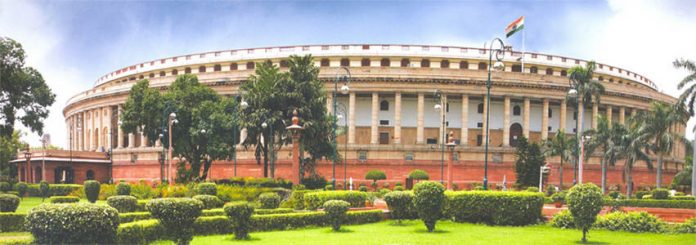This article is written by Pruthvi Ramakanta Hegde. This article emphasises the scope, object, purpose, important provisions, and court interpretation of the Tamil Nadu Government Servants (Condition of Service) Act 2016.
This article has been published by Shashwat Kaushik.
Table of Contents
Introduction
Mahatma Gandhi once said, ‘The best way to find yourself is to lose yourself in the services of others’. In this way, government services play a crucial role in shaping the functioning of a state, and the quality of these services directly impacts the lives of its citizens. Government servants play a prominent role in bringing about changes in society by taking necessary decisions. In the state of Tamil Nadu, the Tamil Nadu Government Servants (Conditions of Service) Act 2016 is significant legislation. This enactment serves as the bedrock for governing the terms and conditions of employment for government servants in the state, ensuring transparency and accountability in their recruitment, conditions of service, disciplinary matters, and retirement benefits. It plays a prominent role in upholding the principles of good governance and providing a well structured framework for the efficient functioning of government employees in the state of Tamil Nadu.
Scope and purpose of Tamil Nadu Government Servants (Conditions of Service) Act, 2016
In order to govern and regulate the government’s service in the state of Tamil Nadu, the Act establishes different provisions and rules. The main purpose of the Act is to regulate the service conditions of government servants employed by the Tamil Nadu state government. It covers a wide range of matters regarding their employment, including recruitment, promotions, terms and conditions of service, disciplinary actions, retirement benefits, and some others.
The major purpose of this Act is:
- To create a systematically organised, well structured, and transparent framework for the recruitment and service conditions of government events by ensuring consistency and fairness in their employment terms.
- To instil accountability among government employees through the establishment of clear guidelines for their conduct, performance, and disciplinary procedures in cases of misconduct.
- To protect and safeguard the welfare of government servants by encompassing their entitlements, including salaries, allowances, leave, retirement benefits, and any associate pensions.
- To facilitate the efficient functioning of government departments and services by providing a legal framework that governs the service conditions and conduct of government employees.
Establishment and application of Tamil Nadu Government Servants (Conditions of Service) Act, 2016
The Tamil Nadu Government Servants (Conditions of Service) Act, 2016 was established on September 14, 2016, following its assent by the Governor. This Act was passed by the Legislative Assembly of the State of Tamil Nadu in the sixty-seventh year of the Republic of India. This Act applies to all holders of government posts, whether they are in temporary or permanent positions, across various state and subordinate services in Tamil Nadu, provided with exceptions in cases where different regulations are provided by other existing laws or when a contract or agreement between the government and a government’s servant specifies different terms.
Important definitions of Tamil Nadu Government Servants (Conditions of Service) Act, 2016
Member of a service
According to Section 3(m) of the Act, a “member of a service” is someone who has been given a job in a specific government department. They haven’t quit their job, retired, been removed, or been moved to a different department. It also includes people who are still in their training period or have completed their training and are now full-fledged members of that government department. So it essentially refers to someone actively working in a government job without any major interruptions or charges.
Reserve list
As per Section 3(u) of the Act, a “reserved list” is a special list that includes at least 25 percent of candidates from various reservation groups, including the general category. This loss is used until a new, regular list is prepared later. Essentially, it ensures that a portion of candidates from reserved categories is included in the initial selection, and the regular list will be created after considering these reserved candidates.
Recruitment agency
As per Section 3(t) of the Act, a “recruitment agency” refers to official organisations responsible for selecting candidates to fill government positions in Tamil Nadu. These organisations include well-known bodies such as the Tamil Nadu Public Service Commission, the Teachers Recruitment Board, the Tamil Nadu Uniformed Service Recruitment Board, and the Tamil Nadu Medical Services Recruitment Board. Additionally, the government may establish similar bodies to oversee the selection of candidates for various government services. These agencies play a pivotal role in the recruitment process for government positions in the state.
Probationer in a service
According to Section 2(p) of the Act, a “probationer in a service” is an individual who is part of a specific government service and is currently in a probationary period as outlined in the special rules relevant to their position. This person has not yet finished or completed their probation, which is typically a specified trial or training period that they must undergo before becoming a full member of that service.
Promotion
As per Section 3(q) of the Act, “promotion” refers to the process of giving a government employee a higher position within their current job category or class. It means they are moving up to a better category or grade within the same area of work they are already in.
Ex-serviceman
As per Section 3(j) of the Act, “ex-serviceman” means a person who has previously served in the Armed Forces of the Union. The person can be considered an ex-serviceman if they meet certain criteria:
- Must have served in the Armed Forces and was released on or before June 30, 1968, without being dismissed or discharged for misconduct or inefficiency.
- Must have served in the Armed Forces for a continuous period of at least six months after their attestation and were released between July 1, 1968, and June 30, 1979, without being dismissed or discharged for misconduct or inefficiency.
- For a continuous period of at least six months after their attestation, and were released between July 1, 1979, and June 30, 1987, for reasons other than their request and not due to dismissal or discharge for misconduct or inefficiency. Alternatively, they could have requested release after serving for a minimum of five years.
- They served in the Armed Forces and retired or were released on or after July 1, 1987. This might be due to their request after earning a pension, on medical grounds related to military service or beyond their control, as a result of a reduction in an establishment, or after completing a specific period of engagement. They should also have been given a gratuity.
- They were part of the Territorial Army in specific categories, such as pension holders for continuous embodied service, individuals with disabilities attributable to military service, and gallantry award winners who retired on or after November 15, 1986.
- They were part of the Army Postal Service and retired on or after July 19, 1989, without reversion to the Postal and Telegraph Department, either due to medical grounds attributable to military service or circumstances beyond their control, and received a medical or disability pension.
- They were discharged on or after July 1987 under Army Rule 1954, Section 13(3)III(V) because their service was no longer required, and they received a pension.
Overview of Tamil Nadu Government Servants (Conditions of Service) Act, 2016
The Act delineates the rules and regulations that govern the service conditions of government employees in Tamil Nadu. The Act provides a well structured and comprehensive framework for the following key aspects:
Application fee
As per Section 8 of the Act, candidates applying through the Tamil Nadu Public Service Commission (TNPSC) for government service positions in Tamil Nadu are generally required to pay an application fee to the government. Most candidates need to pay a fee when applying for government jobs in Tamil Nadu. The exact fee amount may change over time and is determined by the state government. However, there are some other exemptions and special provisions for certain categories of candidates with regards to application fees, which include:
- Candidates belonging to the backward classes who acquire a degree do not have to pay the application fee, regardless of the specific job they are applying for.
- Candidates belonging to the Scheduled Castes or Scheduled Tribes are exempt from paying the application fee for any government job in Tamil Nadu.
- Candidates who have completed their service may be eligible to apply for government jobs without paying the application fee.
- Certain groups are exempted from the application fees, including members of the Operation Subordinate Service, the work-charged establishment of the Electricity Department, or the work-charged establishment under the Electrical Engineer (General) applying for specific posts.
- Candidates can apply for multiple services within a group using one application, but if they are applying for services in different groups, they should submit separate applications, each with its own fee.
- Ex-servicemen are exempt from the application fee, with a limit on the number of free chances.
- Candidates with disabilities are exempt from the application fee.
- Destitute widows, as defined in the Act, are also exempt from the application fee.
Recruitment method
Section 9 of the Act outlines the method of recruitment for government services in Tamil Nadu when it involves a combination of both direct recruitment and recruitment by transfer, despite what the Special Rules for different State and Subordinate Services might specify. The specified proportion or order of filling vacancies by way of direct recruitment and recruitment by transfer, as specified in the special rules, applies only to vacancies in the permanent cadre. Direct recruitment is permitted only for those vacancies in the permanent cadre as per the special rules. These vacancies must be designated for direct recruitment. Additionally, the Section considers any temporary posts that have existed for more than five years as equivalent to permanent posts for recruitment purposes.
Qualifications for the appointment of government services in Tamil Nadu
Sections 20 to 24 of the Act state various qualifications and criteria for the appointment of government services in Tamil Nadu. These rules are very significant in ensuring that candidates meet the necessary essentials for different posts in the state’s government services.
Qualifications
Section 20 of the Act specifies the minimum general educational qualification that is required for candidates applying for government service posts. It specifies the minimum general educational qualification, which is specified in Schedule III of the Act.
Linguistic qualification
Section 21 of the Act states the knowledge of Tamil as the official language of the state. The Section mandates that candidates must have adequate knowledge of the Tamil language in order to apply for most government service posts. However, some provisions allow candidates to apply even if they lack adequate knowledge about Tamil, subject to passing a language test within two years of their appointment. Section 22 specifies the language test, which is a prerequisite for candidates who lack adequate Tamil knowledge. It includes:
- An oral test for candidates with educational qualifications below the VIII Standard.
- A written test for candidates with educational qualifications below the VIII Standard.
- A written test for candidates with VIII Standard and above qualifications but without adequate Tamil knowledge.
Provisions relating to certain degrees
Section 23 states the procedure for evaluating candidates who possess special qualifications. It means that if a person holds an equivalent degree or qualification to what’s required for a specific government service post, they are deemed to meet the special qualifications criteria.
Exemptions from special qualification
Section 24 provides significant relief to probationers who have already obtained certain special qualifications or passed specific tests mandated by the special rules.
Compassionate appointment age limit
Section 15 of the Act prescribes the age limit for compassionate appointments. In compassionate appointments (where a family member is considered for a government job after the death or medical retirement of the government servant), the age limits differ from the regular rules. The maximum age limit for sons or unmarried daughters is 35 years. For the wife or husband of the deceased government servant, the maximum age limit is 50 years. The age limit calculation is based on the date of the government servant’s death or the date of medical retirement before reaching 53 years. The term “sons and daughters” includes widowed daughters, divorced daughters, legally adopted children (with specified effective dates for adoption criteria), and married daughters living with the family of the deceased government servant. The widowed daughter, divorced daughter, or married daughter deserted by her husband and living with the family of the deceased government servant can only avail of this concession if they are nominated in writing by the widow or widower of the deceased government servant.
Appointment by agreement
Section 19 of the Act allows the government to make appointments to specific posts outside the usual rules and agreements if special provisions are deemed necessary. The government can enter into agreements with appointees to address specific conditions of service, pay, allowance, pension, discipline, and conduct for such posts. However, any matters not covered by the agreement will be subject to the provisions of the Act or related rules. Individuals appointed under this Section won’t be considered members of the respective service and won’t have preferential claims for other appointments in that service or any other service.
Temporary appointments
Section 17 allows for special situations where normal rules for appointing people to government jobs can be temporarily relaxed. This happens when there’s an emergency, and filling a job right away is important. In such cases, the usual qualifications for the job may not be strictly required. Instead, the person chosen should be the best fit for the job, considering the emergency. The Section further says that if there’s an investigation going on against a government officer for something like corruption, they can still be given a job temporarily until the investigation is completed, as long as no criminal charges have been filed. The person selected in such cases does not become a permanent employee, and their appointment can be ended at any time.
Appointment of women
Section 26 of the Act focuses upon the appointment of women in dedicated institutions, stating that women alone shall be appointed, with men considered only if suitable women are unavailable. The provisions also mandate a minimum of 30% of vacancies in direct recruitment to be reserved for women, regardless of the application of reservation rules. For posts with a grade pay not exceeding rupees two thousand and eight hundred, 10% of vacancies from the 30% reserved for women are specifically set aside for destitute widows. In case qualified women are unavailable, appointments will be made within the respective categories of male candidates. The Section emphasises the reservation of positions for destitute widows and outlines the selection process in a specified rotation order. If a qualified woman is not found, the turn is passed to the next eligible male candidate for posts without reservation rules.
Posting and transfer
Section 48 of the Act outlines the rules regarding the placement and transfer of government employees within a particular service or class:
- Members of a specific service or class may be assigned to work in any position within that service or class for which they are qualified.
- The authority responsible for appointments also has the authority to make decisions about the placement and transfer of such employees. If this authority is not the government itself, any administrative superior to the appointing authority has the power to manage postings and transfers within their respective areas.
- Even if there are specific rules or regulations in place, the government has the right to refer a government employee from one revenue district to another within the state. These transfers are carried out for administrative reasons and can override other rules or special regulations.

Resignation
Consequences of resignation
Section 49 states the consequences of a member of a government service resigning from their position, including:
- If a member of a government service resigns, they not only forfeit the service in the specific post they held at the time of resignation but also lose all their previous government service under the government.
- If such a person is reappointed to any government service, it is treated as if they are being appointed for the first time through direct recruitment. All the rules and provisions governing such an appointment apply.
- Additionally, if a member of a government service resigns and later participates in elections as a party candidate or an independent candidate for Parliament, the State Legislature, or local bodies, they are not eligible for reappointment to any government service.
Acceptance of Resignation
Section 50 provides the implications and acceptance of the resignation of the employee, including:
- A government servant can resign by giving written notice to the appointing authority, with a copy sent to their immediate superior officer. The notice must be given at least three months before the intended date of resignation.
- The government servant can withdraw his resignation before it is officially accepted by the appointing authority. Once the resignation is accepted, withdrawal is not allowed.
- The appointing authority must issue orders on the notice of resignation before the end of the notice period. The order can either accept the resignation, with a resignation date no later than the notice’s expiration, or reject it, providing reasons for rejection. If no order is issued, the resignation is deemed to have been accepted at the end of the notice period.
- The resignation notice given by the government servant will be accepted by the appointing authority, subject to specific conditions, including:
- There are no ongoing or contemplated disciplinary proceedings under certain rules.
- Confirmation from the Director of Vigilance and Anti-Corruption that no investigation is pending against the government servant.
- There are no outstanding dues owed to the government by the government servant.
- There are no contractual obligations, including obligations to serve the government during the resignation period.
- In exceptional cases where a government servant is under suspension or facing disciplinary, criminal, or vigilance investigations and wishes to resign, the appointing authority must assess the gravity of the case. If the case does not warrant the rejection of the resignation notice, it may be accepted.
Military duty to count for pension
Service members deputed for military duty, under Section 51 of the Act, can count that period towards their pension, similar to their civil service tenure. However, this doesn’t apply to those holding temporary posts under the Madras Armed Reserve Police Service Rules of 1941 who hadn’t been part of any state or subordinate services previously. Members in the Army Reserve follow rules in Appendix ‘A’ to the India Reserve of Officers, 1939, for pension related matters during their service.
Overriding effect of special rules
As per Section 68, if there’s a conflict between the rules in this Act and the specific rules that apply to a particular government service, the specific rules take precedence or are more important when it comes to that specified service. So, in case of any inconsistency, the special rules for those services are the ones that matter the most.
Appeal or Review
Section 66 states the process of appealing or seeking a review of certain orders when there are no specific provisions for appeal or review in the law or special rules. If there’s an order that someone disagrees with and there’s no clear way to appeal or review it in the law or special rules, they can still appeal or request a review. They should do this with the authority that handles appeals against dismissal orders. To make an appeal or request a review, it should be done within 2 months from when the person receives the order they’re unhappy with. The authority in charge of appeals or reviews should handle these cases within 4 months from the date they receive the appeal or review request. In some circumstances, the appellate or reviewing authority can give temporary directions to prevent any significant harm or administrative issues while the appeal or review is ongoing.
Committees on Appeal
Section 67 discusses the establishment and role of a committee on appeals. This committee is made up of important individuals, including the Vigilance Commissioner and the Secretary to the Government for Personnel and Administrative Reforms. The main functions of the committee include giving advice and supporting various matters, like seniority revisions, appeals, and reviews, where the government possesses decision-making authority. The Committee on Appeals handles certain issues like changes in job ranking, adjustments to the list of approved candidates, and appeals or reviews. The Committee consists of different members, including the chairperson, who is the vigilance commissioner and commissioner for administrative reforms, and the convenor, who is the secretary to the government in the personnel and administrative departments. When someone wants to change their seniority by modifying the list of approved candidates or appealing a decision, that case needs to be sent by the relevant government to the Committee on Appeals. The government takes the final decision after getting advice from the Committee on Appeals.
Interpretation of Section 27(f) of Tamil Nadu Government Servants (Conditions of Service) Act, 2016
In State of Tamil Nadu v. K Shobna (2021), the case is about the appointment of postgraduate assistants in chemistry departments in the state of Tamil Nadu. The issue was that the allocation of high-scoring candidates was put in the Most Backward Class (MBC) category instead of the General category, which affected the selection of other candidates. In 2019, applications for postgraduate assistants in chemistry were invited by the Graduate Teachers Recruitment Board in Tamil Nadu. The issue arose when candidates, including the respondents, weren’t selected. They contended that MBC candidates were placed in the MBC quota without giving the general category a selection chance. The Court, while interpreting Section 27(f) of the Act, held that the Section deals with reserving vacancies that are not filled, but that doesn’t mean filling these vacancies with MBC candidates regardless of their merit. The Court further held that candidates should be placed in the general category when they are high-scoring and only after backlog vacancies need to be filled. Finally, the Court held that increasing MBC candidates will not amount to violations of reservations or provisions of the Constitution. This case decision does not affect the reservations exceeding 50 percent in Tamil Nadu.
Conclusion
The Tamil Nadu Government Servants (Conditions of Service) Act, 2016 plays a significant role in governing the different aspects of government service in the state of Tamil Nadu. The said Act establishes different issues related to reservations, transfers, promotions, application fees, probation periods, and others. The Act provides a determined framework for the candidates’ selection based on their merit and reserves certain percentages for different categories, like scheduled castes, scheduled tribes, backward classes, and women. The Act comprises a diverse and inclusive work environment in government services. The Act establishes measures like reserving a minimum of theory percent of all vacancies for women candidates during their direct recruitment. In this way, the Act gives equal importance to each gender while giving more importance to women empowerment. The Act provides accuracy and transparency by allowing any changes or amendments to established rules and notifications issued under the Act to be subject to review and approval by the Legislative Assembly as required. Thus, this Act provides fairness and equity by regulating the conditions of service for government employees in the state of Tamil Nadu.
Frequently Asked Questions (FAQs)
What is the purpose of the Act?
The Act is state legislation in Tamil Nadu that regulates the conditions of service for government servants in the state of Tamil Nadu.
What are the rules under this Act when recruitment involves both direct and transfer methods, and how does it distinguish between permanent cadre and temporary posts?
The Act consists of rules that include both direct and transfer methods. In cases where recruitment involves both direct and transfer methods, special rules apply only to permanent cadre vacancies. Direct recruitment occurs for eligible permanent cadre vacancies, while recruitment by transfer is for all other vacancies, with temporary posts exercising five years considered permanent for this purpose.
Are there any provisions for women’s representation in government services?
Section 26 of the Act provides provisions for the appointment of women in government services, with specific guidelines for reservations. It establishes specific provisions that regulate and govern the selection of women by ensuring equal representation. The Section also intends to foster gender diversity within the public sector by providing comprehensive provisions for the recruitment of women into government service in the state of Tamil Nadu.
References
- https://www.enotes.com/homework-help/the-best-way-to-find-yourself-is-to-lose-yourself-405335
- https://blog.ipleaders.in/an-overview-of-section-27f-of-the-tamil-nadu-government-servants-conditions-of-service-act-2016/
Students of Lawsikho courses regularly produce writing assignments and work on practical exercises as a part of their coursework and develop themselves in real-life practical skills.
LawSikho has created a telegram group for exchanging legal knowledge, referrals, and various opportunities. You can click on this link and join:
Follow us on Instagram and subscribe to our YouTube channel for more amazing legal content.
 Serato DJ Crack 2025Serato DJ PRO Crack
Serato DJ Crack 2025Serato DJ PRO Crack










 Allow notifications
Allow notifications


